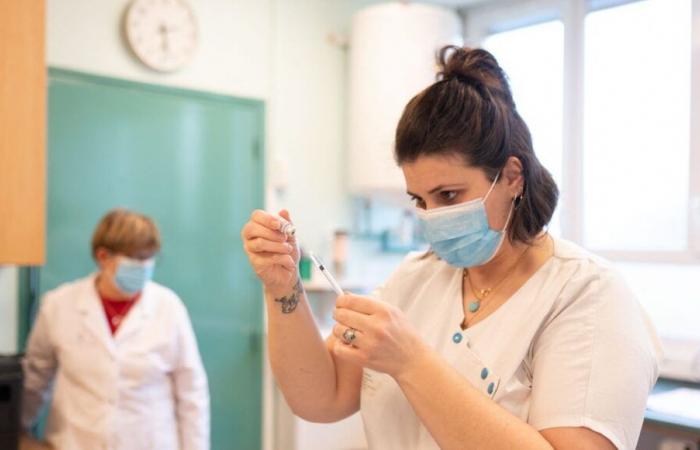What motivations does the job of nurse require? What motivates you to get involved in this varied profession that you can practice in hospitals, as a freelancer, in public institutions or in a private company? How does the training take place?
What are the fundamental qualities for exercising and its main difficulties? Why does this profession remain unknown?
Elements of response this morning with our guests:
- François Miquet Marty, president of the Les Temps Nouveau group and coordinator for BloomTime of the survey, co-signed by Lucia Socias, devoted to the “Life stories” of nurses, carried out for the Jean-Jaurès Foundation and the Fédération des Mutuelles de France.
- Jérémie Peltier, co-director general of the Jean Jaurès Foundation. Author of The party is over (Editions de l’Observatoire, 2021).
- Frédérique Alexandre-Bailly, general director of ONISEP.
- Jeremy Guy, nurse anesthetist at SMUR, trainer of adult and pediatric intensive care nurses. He writes columns on Instagram @lesminutesdejerem and on his YouTube channel. He is also co-creator of the podcast “Dopamine”. Author of EMERGENCIES. The right gesture at the right time (Solar/Dr.Good, 2024).
- Jessy : pediatric SMUR nurse.
A double-edged vocation?
François Miquet Marty first begins by analyzing this omnipresent notion in conversations around this “passionate profession”: “This idea of vocation is very present and has a double meaning, because we expect so much from nurses because of this vocation that, sometimes, we consider that we can give without limit, without end“.
Jérémie Peltier highlights the sacrificial side often associated with the term, inherited directly from the religious history of the profession and which must be put into perspective, but observes that “the sense of humanism” remains a powerful driving force for new generations.
The midday debate Listen later
Lecture listen 54 min
Going beyond the clichés surrounding a profession that is more complex and more demanding than we think
The two nurses warn of the need to break with the stubborn stereotypes that surround their profession.
Jessie denounces the preconceived idea of an exclusively feminine profession, affirming “that there are more and more men who choose to exercise this profession“. It also recalls the diversity of places of exercise, “from prisons to schools, maternal and child protection centers“Jérémie Guy protests against the reductive image of the nurse as simple”doctor technician“, emphasizing its ability to “criticize and potentially correct a prescription if there is an error“.
The job of nursing requires much more than you might think. Frédérique Alexandre-Bailly insists on the essential qualities to practice this profession: “First of all, the sense of humanity is the basis. There is also a question of reflection, of having a scientific mind because we are very often led to having to be able, based on the relationship we have with the patient, to rethink a diagnosis of the state of the patient. patient the moment we see him“.
She warns against the simplistic idea according to which the profession is reduced to a simple “relation of care“, and emphasizes the importance of teamwork. Jérémie Peltier dismantles the prejudice according to which nurses “failed to do anything else“, recalling that studies to become a nurse are “extremely demanding“.
Great good to you! Listen later
Lecture listen 53 min
The quest for recognition: a vital need for caregivers
François Miquet Marty explores the paradox of the “invisibility of the essential”: the work of nurses, although essential, suffers from a lack of societal recognition. The sociologist analyzes the reasons for this invisibility, linked to modesty and the difficulty of quantifying the impact of care. Also, this lack of recognition, combined with pressure and fatigue, can have a profound impact on the motivation of caregivers.
Jérémie Peltier identifies several levels of recognition: that, sometimes missing, of doctors and families, and that, essential, of patients: “This is what means that at the end of the day, we know that we have carried out a useful profession and they recognize what we have done, recognize the work accomplished, the usefulness that we have had in their life during the day“. He also underlines the gap between the importance of the function and the remuneration, pointing the finger “salary and remuneration [qui] does not follow“.
By listening to the entire program, find the testimonies of a nurse on the meaning of vocation, the issues of recognition of the profession and how training for the nursing profession is organized.
ONISEP link “How to become a nurse?”






